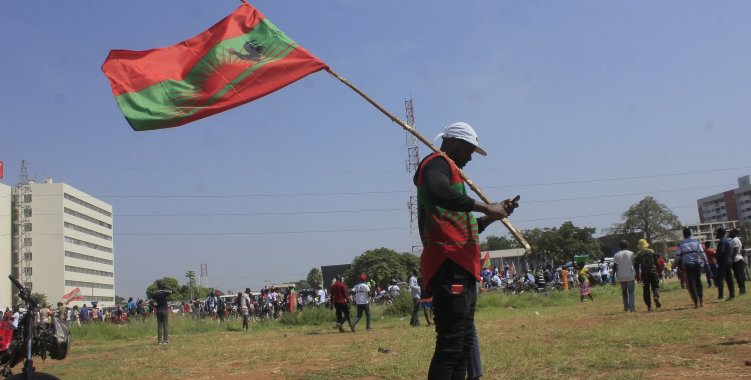Álvaro Chikwamanga, secretary general of the National Union for the Total Independence of Angola (UNITA), said that it is not serious for such an important measure, which "has a violent impact" on prices and consequently the lives of families and companies, to be decided to 1 June and take effect the following day.
Speaking at a press conference, on the impact of the rise in the price of gasoline, which as of last Friday started to cost 300 kwanzas/litre against the previous 160 kwanzas, Chikwamanga referred that the decision translates into a "lack of respect for people".
"It is very disrespectful, to the people, to fail in the policies and to make the citizens responsible for the consequences. It is lack of sensitivity, to know the best moment to adopt a policy and to do it in the worst moment", he noted.
The UNITA secretary general appealed to the President to "understand the sensitivity" of the issue of fuel subsidies, "due to its social and political repercussions".
The Government announced on Thursday the gradual withdrawal of subsidies for gasoline, which now costs 300 kwanzas/litre, maintaining the subsidy to the agricultural sector and fishing.
According to the Minister of State for Economic Coordination, Manuel Nunes Júnior, the rates of taxi drivers and motorcycle taxi drivers will be subsidized, with them continuing to pay 160 kwanzas per liter of gasoline, with the State covering the difference.
The measure came into effect at 01:00 on Friday.
For UNITA, the withdrawal of fuel subsidies is not the real problem, "because it has always been a necessity for the country", said the leader, considering that the problem "are vested interests that use governance for their own benefit".
The measures adopted by the Government to curb the impact of the rise in fuel prices "transmit a certain inconsistency, because while subsidies are withdrawn from some segments of society, they are maintained in other segments".
"We urge the executive to better clarify the sustainability of these measures, in a context of an orthodox public administration and a highly informal economy", stressed Álvaro Chikwamanga, and then questioned: "Is it not exacerbating the leaks through which public money drains into pockets private?"
In 2022, the subsidy for fuel prices amounted to around 1.98 billion kwanzas, corresponding to 3.8 billion dollars at the current exchange rate.
The Government will liberalize fuel prices, in a phased manner, until 2025, starting with the partial removal of gasoline subsidies, the price of which will be "free and floating" as early as next year, the authorities announced.







